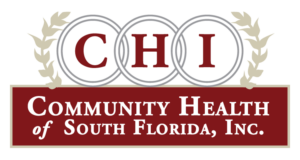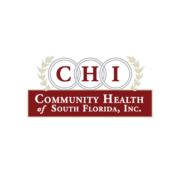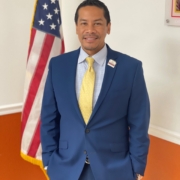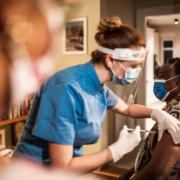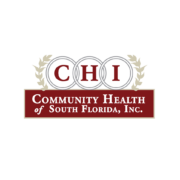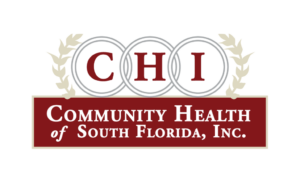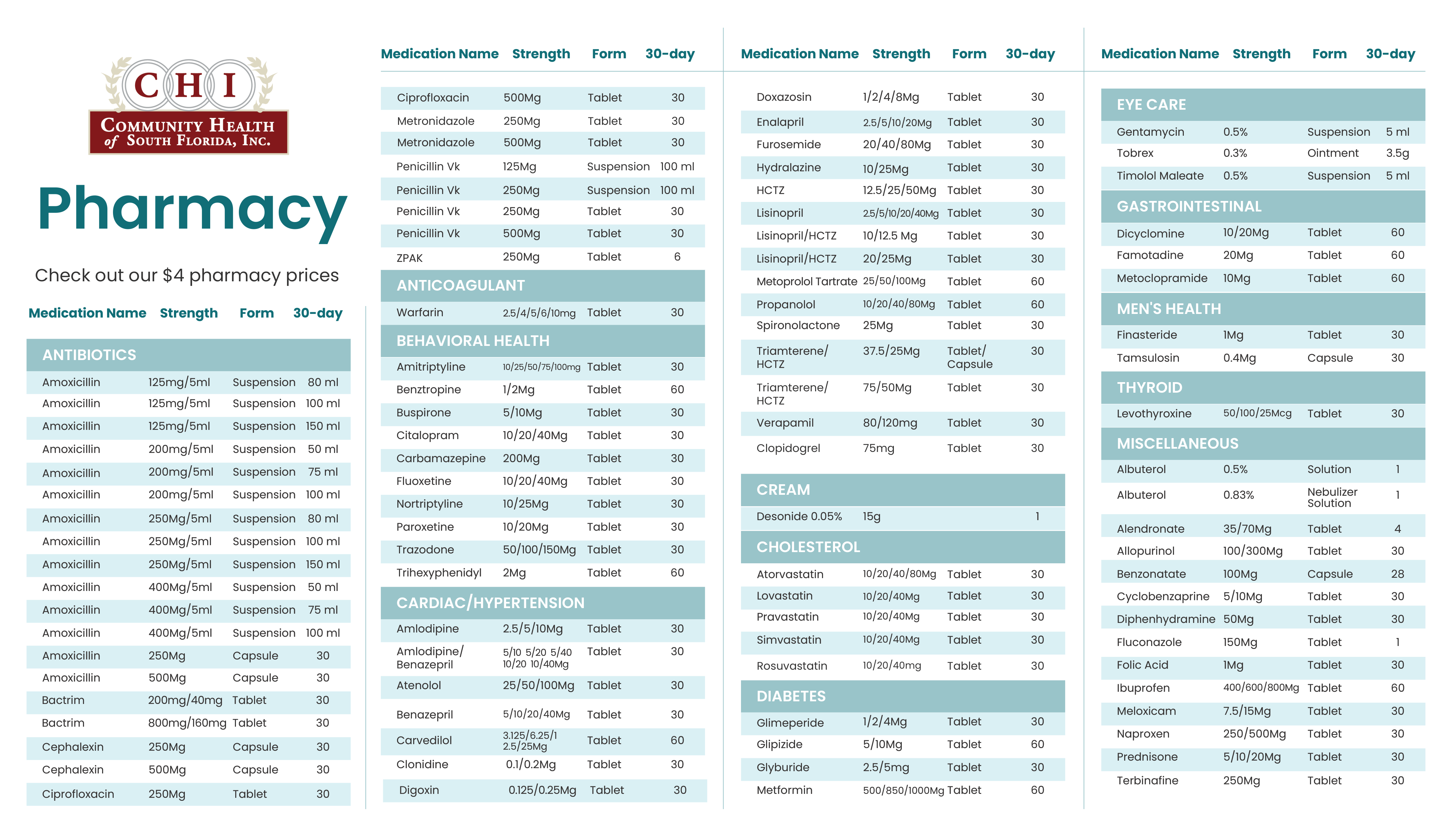#MentalHealthMatters: Break the cycle and start the conversation in the Black community
 Black communities in America are 20% more likely than the general population to experience serious mental health challenges, according to Health and Human Services. Yet the American Psychiatric Association says only one in three Black adults will receive the treatment that they need.
Black communities in America are 20% more likely than the general population to experience serious mental health challenges, according to Health and Human Services. Yet the American Psychiatric Association says only one in three Black adults will receive the treatment that they need.
The problem is made worse during a time when a global pandemic and social justice movements have significantly impacted Black Americans’ mental health.
That’s why Community Health of South Florida, Inc. is starting the conversation with a special video released in honor of Black History Month. It’s called “Mental Health in the Black Community.” The video can be watched at chisouthfl.org/blackhistory
The video features an interview between Tiffani Helberg, Vice President for Communications, and Jean Pierre, Vice President and Chief Behavioral Health Officer. Pierre examined the factors that led to an uptick in patients at CHI seeking behavioral health services in the past two years, and yet, he points out that there are reasons why not everyone who needs help seeks it.
One of those reasons can be traced to a historical mistrust in the medical community, stemming from a lack of diversity in the medical field.
“At CHI, we’re extremely privileged,” said Pierre, encouraging patients to find a CHI provider with whom they feel comfortable. “We have clinicians from all races, creeds, and ethnic backgrounds.”
Other times, people will seek support from their faith community rather than from a mental health professional—a fact that Jean Pierre said is an opportunity to connect with churches and faith-based organizations.
“The churches in African-American communities play a phenomenal role,” said Pierre. “As a community health center, we have the opportunity to partner with our spiritual leaders and actually participate in the congregations’ activities such as health fairs and other outreach events.”
Nevertheless, CHI has made it easier to seek behavioral health services, he said. “The pandemic has enabled us to expand our telehealth services where patients can actually see a doctor, therapist, or clinician from the comfort of their own home.”
CHI’s telehealth services are an option for both adults and children, as well as in-person services at many of the 12 health centers across Miami-Dade and Monroe counties.
As people continue to cope with the ongoing pandemic and other issues, relatives should maintain awareness of their loved ones if they show changes in attitude or daily behaviors, mood swings, appetite loss, decreased interest in personal hygiene and isolation—which could mean that it’s time to seek behavioral health services.
If you or your family are struggling with mental health, you can start a conversation with us at CHI by visiting chisouthfl.org/blackhistory or calling 786-272-2100.
Mental Health Services Crucial to Helping Our Children Cope
With the pandemic continuing to uproot our community’s sense of normalcy, one population is increasingly struggling with mental health in the midst of it all– our kids.
For children between ages 10 and 17 years old, the rollercoaster between being removed from school and being placed in virtual learning has resulted in huge gaps in social development.
Dr. Pratt is the Behavioral Health Medical Director at CHI and specializes in pediatric psychiatry. He says peer-to-peer relationships in this age group are crucial.
“This is when we develop relationships and figure out who we are,” said Dr. Pratt. “And really, we do this at school.”
When it comes to depression, stress, and anxiety, our children and adolescents may not be equipped to verbalize these feelings. Many times when they do, parents may end up dismissing them. Dr. Pratt points out this can be a missed opportunity to intervene and provide the behavioral health services the child needs.
Other times, parents may notice a change in their child’s behavior, such as isolating themselves, or not taking pleasure in things they used to enjoy doing. Dr. Pratt notes that parents and caretakers must also look after their own mental health during the pandemic.
“Parents also need to take care of their own mental health,” said Dr. Pratt. “Kids learn how to cope with things by watching their parents.”
Low-income households are often the most affected, but least supported in Florida. “Unfortunately, our system isn’t designed to help children until they’ve reached a breaking point,” said Dr. Pratt. “That’s why it’s crucial to maintain awareness of our kids’ well-being, making sure to intervene at the earliest stages.”
“It’s so much easier to address issues when they’re in the infancy stages, rather than when it becomes chronic.” CHI offers behavioral health services for children and adults at most of its health centers and via telehealth.
“CHI has really stepped up in getting more behavioral health professionals,” said Dr. Pratt, who adds that CHI’s telehealth services can also make a difference in how our kids are coping with the pandemic. In order to serve children who are struggling with severe mental illness in south Miami-Dade and Monroe counties, CHI is opening the Children’s Crisis Center in 2022.
“Unfortunately, when a child is in crisis, they may sit in the ER for three or four days before they’re even able to get into a bed,” said Dr. Pratt. “The Children’s Crisis Center is going to be a wonderful resource for the area because south of here to the Keys, there’s not a place for kids to go.”
In the meantime, Dr. Pratt said that acknowledging our children’s resilience and ability to overcome challenges through the pandemic can help them cope.
“Kids are much more resilient than we give them credit for,” Dr. Pratt said. “We forget how hard it is to be a child. It’s important to acknowledge that.”
A Message From The President and CEO
 I feel so honored to now serve as your President and CEO. I love this organization as I have been working for Community Health of South Florida, Inc. (CHI) for 16 years. Our team has evolved and become stronger and more strategic over the years. Together we will chart new paths for South Florida and work hard to keep everyone healthy. Yet the solid tenants of our motto and mission remain the same. We will always put patient care first.
I feel so honored to now serve as your President and CEO. I love this organization as I have been working for Community Health of South Florida, Inc. (CHI) for 16 years. Our team has evolved and become stronger and more strategic over the years. Together we will chart new paths for South Florida and work hard to keep everyone healthy. Yet the solid tenants of our motto and mission remain the same. We will always put patient care first.
I have the highest regard for the staff at CHI. They have powered through one of the most difficult times in healthcare. The pandemic has pushed them to the limit. Yet their unwavering devotion to our community and our patients has never been more apparent.
As you might know, this team was the first to offer drive through COVID-19 testing at the onset of the pandemic. Today, we continue to administer both the rapid and PCR tests. We also offer all three vaccines to people ages five and above for free. We continue to offer a robust line of comprehensive services at our 12 health centers. Our services include primary care, pediatrics, OB/GYN, behavioral health for adults and children, dental, urgent care, vision, pharmacy, radiology and transportation. It is critical that the community has access to high quality healthcare.
But the high quality, compassionate organization of CHI would not be what it is today without the leadership of my mentor, Brodes H. Hartley, Jr. He selflessly spent nearly 40 years pushing his vision to reality. I thank him for his dedication to the organization, to the people of South Florida and for my own growth. As he passes the baton to me, I recognize the enormity of the role that he leaves to me. I will do everything within my power to ensure the continued success of CHI.
We have a lot of exciting things ahead of us. Sites and services will be expanding. But innovation is what helps set us apart over time. We are a service industry and our ability to provide what the community wants and needs, when they want it, and in a way that they expect it is crucial. It will help us continue to be the place that patients choose as their medical home.
Yours Truly,

Blake Hall
Key West Health Center Opening Marks Important Milestone in CHI’s Mission

CHI Key West Health Center is located at
727 Fort Street, Key West, FL 33040.
For more information visit:
chisouthfl.org/keywest-health-center
or call (786) 272-2160
The sun is beginning to set in Key West as a vibrant Junkanoo band makes its way down Fort Street in Bahama Village in a bustle of bells, whistles, and drums.
The band concludes with a round of applause erupting in front of the brand new CHI Key West Health Center. It is CHI’s 12th health center in South Florida and the third in Monroe County—marking a significant milestone: to serve Monroe County residents with a health center in the lower, middle, and upper Keys.
Dignitaries from the city of Key West and Monroe County and local residents gathered with CHI leadership and professionals to reflect on the significance of this center for the surrounding community.
CHI’s former CEO, Brodes Hartley, Jr. spoke at the event, noting that patients can expect high-quality, reliable care and services at the Key West Health Center.
“It doesn’t matter whether they have insurance or do not have insurance, whether they have money or do not have money,” said Hartley. “We are dedicated to providing services to the entire community.” CHI President and incoming CEO, Blake Hall, echoed Hartley’s sentiments, adding that this health center has been a longtime goal of CHI.
“I remember in 2007 when CHI was invited into the Keys,” Hall noted. “This has been something that we’ve been dreaming about and here we are. Today is it!”
The CHI Key West Health Center is now open to the public and plans to offer primary care, pediatrics, behavioral health, OB/GYN, dental, and telehealth services to the community.
Main Location
- 10300 SW 216th St.
- Miami, FL 33190
- (305) 253 - 5100
- Get Directions
